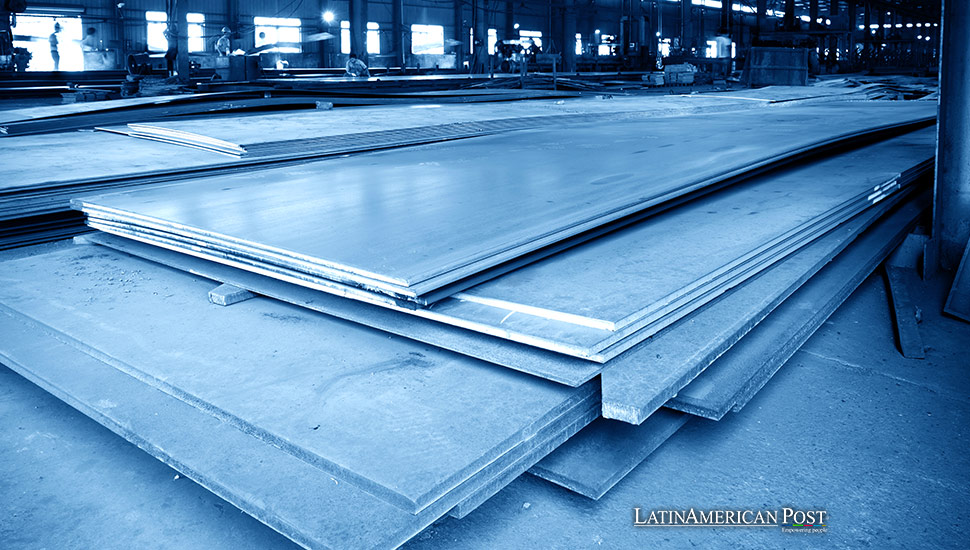Brazil Sets Steel Import Quotas Amid Rising Concerns

Brazil introduces import quotas on eleven steel products and a 25% tariff on amounts exceeding these limits, aiming to stabilize the national steel industry without affecting consumer prices.
The Brazilian government announced the implementation of import quotas for eleven steel products, including rolled products, tubes, and wire rods, coupled with a 25% tariff on any volumes exceeding these quotas over the next twelve months. This move, approved by the Executive Management Committee of the Foreign Trade Chamber, is set to take effect in about 30 days, according to a statement from Brazil’s Ministry of Industry and Commerce.
Addressing Concerns and Setting Quotas
The decision, still pending analysis by Mercosur partners—Argentina, Brazil, Paraguay, Uruguay, and Bolivia (currently in the final stage of total membership)—aims to address concerns raised by the national steel industry about the surge in cheaper Chinese steel imports, which have been perceived as a threat to local producers.
The quotas have been determined based on a comprehensive analysis, noting that the volume of foreign purchases in 2023 exceeded the average acquisitions from 2020 to 2022 by 30%. This measure seeks to reduce the overcapacity in the Brazilian steel industry, which has struggled with idle production capabilities. Based on findings from technical studies, the government assures that these new quotas will not impact consumer prices or the broader production chain.
Furthermore, the ministry has committed to closely monitoring market behavior over the twelve months the measure is in effect to ensure it achieves its goal of mitigating unfair competition and supporting domestic industry without adverse economic impact.
However, introducing these import barriers has sparked debate among various sectors within Brazil. Critics argue that these measures could potentially hinder competitiveness and fuel inflation at an annual rate of 3.93%. The Brazilian steel industry is critical for higher value-added manufacturing and civil construction sectors. An increase in steel costs could harm the competitiveness of the entire production chain that relies on this raw material, potentially jeopardizing job creation.
Industry Concerns
José Velloso, executive president of the Brazilian Association of Machinery and Equipment Industry (Abimaq), expressed concerns that the higher costs of steel, an essential input for both advanced manufacturing and construction, could damage the competitiveness of these industries, ultimately affecting job creation.
Brazil’s move is not isolated. Across Latin America, countries are grappling with similar challenges as they strive to protect their manufacturing sectors from the impact of global trade dynamics, including the influx of cheaper foreign materials. While such protective measures can help shield local industries from immediate harm, they also raise questions about long-term economic implications, such as price increases and reduced competition.
The issue is particularly poignant in the context of Mercosur, a trading bloc that has historically aimed to facilitate a free trade area among its member countries. Brazil’s decision to introduce quotas and tariffs must be harmonized with Mercosur’s broader goals and regulations, ensuring that it does not disrupt the bloc’s internal market dynamics.
Observing the Policy’s Impact
As Brazil positions these tariffs and quotas as a necessary step to protect its steel industry, the effectiveness of these measures will be closely watched. The balance between protecting local industries and maintaining healthy competition and price stability is delicate. The outcome of this policy could serve as a benchmark for similar strategies in other Latin American countries facing the challenge of integrating domestic protection with open international trade policies.
Also read: Brazilian Court Denies X’s Request to Exempt Subsidiary from Legal Responsibility
As Brazil navigates these complex trade and economic waters, the global steel industry, international trade experts, and economic policymakers will be keenly observing the impact of these measures. Brazil’s strategy’s success or failure could offer valuable lessons on managing the delicate balance between protecting domestic industries and fostering an open, competitive market environment.





